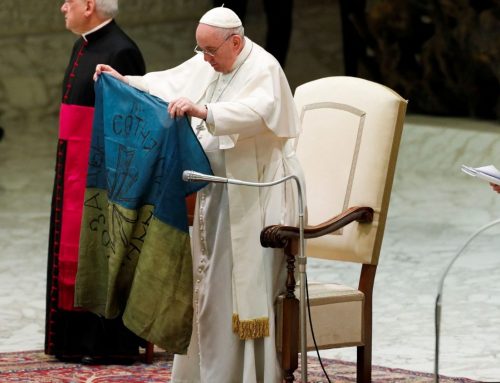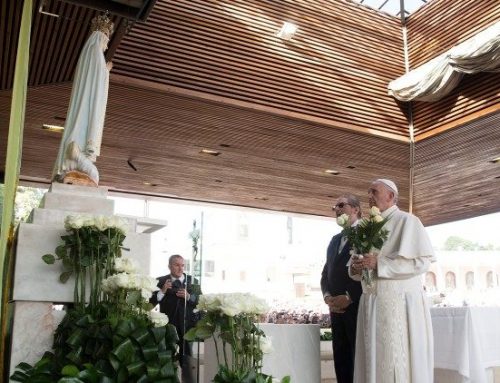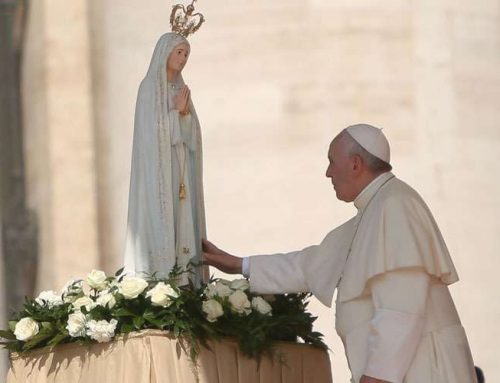At Angelus prayer, the Pope urged faithful to help “the many brothers and sisters weighed down by poor living conditions” and “by difficult life situations”
At Angelus prayer, the Pope urged faithful to help “the many brothers and sisters weighed down by poor living conditions” and “by difficult life situations”
At the Sunday Angelus, Pope Francis called on faithful to give themselves rest and take on the problems of the many people living in difficult situations, “the many brothers and sisters weighed down by poor living conditions.” The day after his very intense visit to the southern Italian region of Molise, Francis addressed the tens of thousands of faithful who braved the sweltering heat of St. Peter’s Square, to reinforce the increasingly strong bond between faithful and a much loved Pope. A Pope who in just over a year has managed to bring so many people back to the faith.
A group from the Italian region of Romagna explained their decision to attend the Angelus prayer: “We are a group of friends who volunteer to help children in difficulty: Francis preaches mercy and we see him as an example to follow,” said Andrea Binci, 41, “this is why we have come to express our closeness to him. There are also people among us who are not believers but we are united in our admiration for Pope Francis.”
Jorge Mario Bergoglio spoke about “the people who are suffering and even to the point of exhaustion due to the unbearable weight they bear of abandonment and indifference,” people “tried by poverty” “forced to emigrate from their homeland, risking their own lives” or “exploited” by “the economic system”. “I would like to extend a special greeting to all the good people of Molise who yesterday welcomed me into their beautiful land, but also into their heart. It was a warm welcome that I will never forget. Thank you so much,” the Pope said, recalling yesterday’s visit to Campobasso, Castelpetroso and Isernia in the southern Italian region of Molise.
The pontiff took its cue from Jesus in the Gospel of today’s Mass: “Come unto me, all ye that labour and are heavy laden, and I will give you rest” The Pope explained that Christ’s invitation “extends to the present day, reaching the many brothers and sisters weighed down by poor living conditions, by difficult life situations and sometimes by a lack of valid points of reference.” “People who are suffering and even to the point of exhaustion due to the unbearable weight they bear of abandonment and indifference, are to be found in the poorest countries of the world and also in the richest countries, often in the peripheries and hinterlands of the places where the wealthiest dwell.” “How much pain human indifference causes to the needy and Christian indifference is even worse;” Francis added in an off-the-cuff comment.
On the margins of society,” he said, “there are many men and women worn down by poverty, but also by dissatisfaction and frustration in life.” “Many are forced to emigrate from their homeland, risking their own lives. Many more bear the daily weight of an economic system that exploits man, imposes an unbearable “yoke”, which the privileged few do not want to bear.” “Once we receive refreshment and comfort of Christ – he concluded – we are called in turn to give to rest and comfort to our brothers and sisters, with a meek and humble attitude, in imitation of the Master,” Francis said. But his message is also aimed at those who have everything but their heart is empty without God: Jesus says to them: “Come unto me”. Jesus’ invitation is to everyone but especially for those who suffer the most.
The““yoke” of the Lord consists in taking the burden of the other upon oneself, with brotherly love. The Holy Father told the faithful, “Once you have received the refreshment and comfort of Christ, we are called in turn to become refreshment and comfort for our brothers and sisters, with a meek and humble attitude, in imitation of the Master,” the Pope said. “Meekness and humility of heart help us not only to take charge of the weight of the other, but not to impose upon them with our own personal views, our opinions, our criticism, or our indifference.”







Leave A Comment
You must be logged in to post a comment.